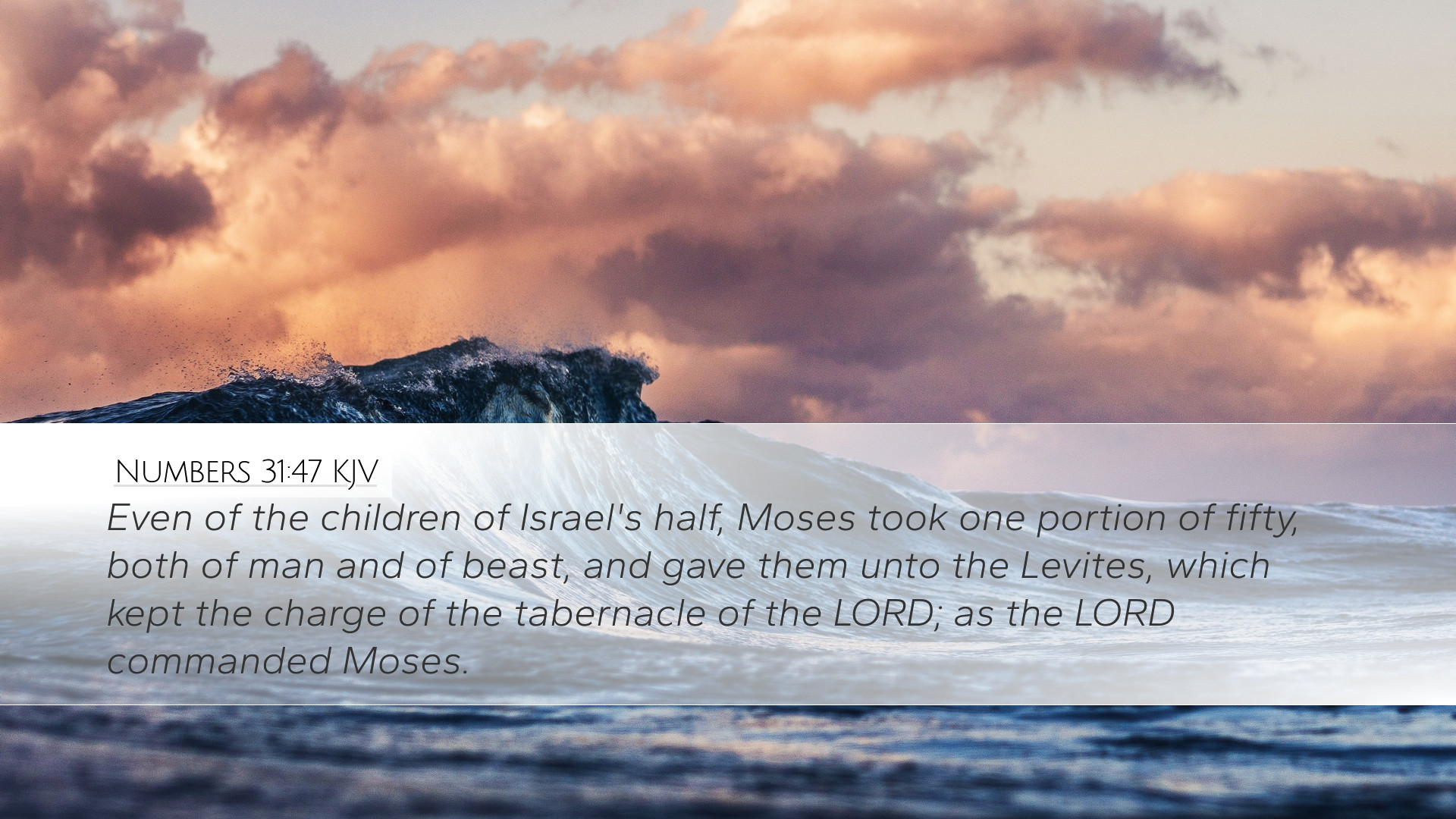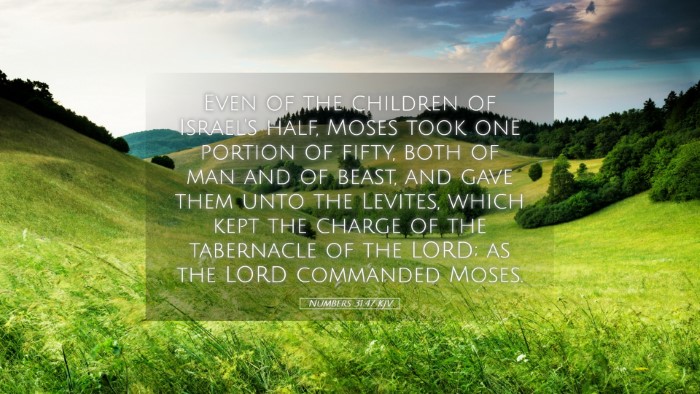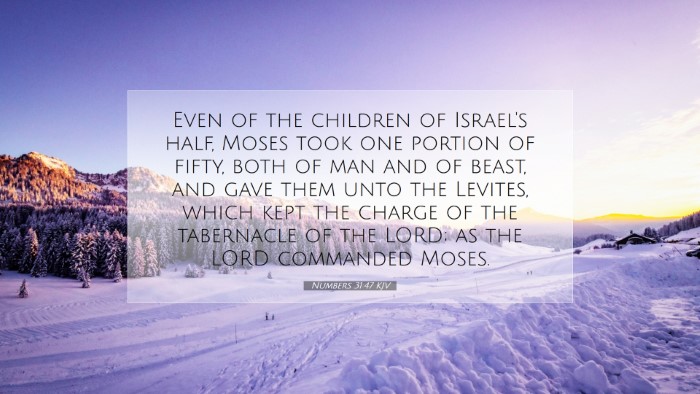Commentary on Numbers 31:47
Verse Context: Numbers 31:47 is set within the broader narrative of the Israelites' conquest of Midian and the dividing of the spoils. In this verse, we find a specific directive regarding the offerings that are to be given to the Lord from the spoils of war.
Verse Text
Numbers 31:47 - "And of the children of Israel's half, thou shalt take one portion of fifty, of the persons, of the oxen, of the asses, and of the sheep, of all manner of beasts, and give them unto the Levites, which keep the charge of the tabernacle of the Lord." (KJV)
General Commentary
This verse illustrates the principle of dedicating a portion of the bounty gained through conflict to the service of God, specifically highlighting the role of the Levites. It emphasizes the importance of acknowledging God’s sovereignty even in victories.
Matthew Henry's Insights
-
Divine Ownership:
Henry suggests that the spoils belong to God and should be offered back to Him as an expression of gratitude and recognition of His providence. Every blessing received is ultimately His, and hence, it is a law that a part must be returned to signify respect and devotion.
-
The Role of the Levites:
Henry emphasizes that the Levites, as caretakers of the tabernacle, represent the priestly line dedicated to service. The specific portion allocated to them reflects a communal responsibility to support those who minister before God.
-
Symbol of Unity:
The act of providing for the Levites is a reminder of the unity within the Israelite community. The people, though they fought, still recognize their collective duty towards God and those who serve Him.
Albert Barnes' Commentary
-
Mosaic Law and Proportion:
Barnes explains that this command reflects the structure of the Mosaic Law, which is designed to maintain a proper spiritual order. The offering of one in fifty exemplifies a principle of proportional giving which underscores the need for intentionality and permanence in offering to God.
-
Spiritual Responsibility:
Barnes points out that believers are called to share their bounty with those dedicated to spiritual oversight. This model serves as a precursor to the New Testament principles of supporting church leadership and ministry.
-
Historical Context:
He denotes that this was a cultural reminder against greed and personal ownership of the spoils of war. Instead, it teaches communal sharing and the acknowledgment that victory is a result of divine intervention.
Adam Clarke's Exegesis
-
Cultural Significance:
Clarke elaborates on the cultural and ritual significance behind the distribution of spoils. He notes that this act was part of a covenant relationship that extended beyond mere rules, establishing a dialogical relationship with God that was reflective of their identity as His people.
-
Justice and Equity:
Clarke argues for the notion of equity in offering, reminding the Israelites that their measure of giving back to God must consider justice rather than just ritual obligation—implying a deep sense of communal and divine responsibility.
-
Theological Implications:
He connects the act of offering to Christ's sacrificial model, illustrating how the dedication of the spoils foreshadows the ultimate sacrifice made by Christ for humanity, which rekindles our call to give our best to God as an extension of grateful service.
Application for Today
This verse and its commentary create a rich context for understanding the principles of giving and dedication in the modern church.
- Stewardship:
Modern believers are reminded to view their resources as ultimately God’s, encouraging generous and intentional stewardship, not out of obligation but gratitude.
- Support for the Ministry:
The principle of supporting those in ministry remains vital; churches today should reflect on how they are providing for pastors and leaders, ensuring they can dedicate themselves fully to God’s work.
- Community Handling of Resources:
This understanding can foster a spirit of teamwork within congregations, where resources are shared to enhance the overall mission of the church and serve broader communities.
Conclusion
Numbers 31:47 serves as a potent reminder of reciprocity in our relationship with God, calling on contemporary believers to honor the divine giver through their offerings, to maintain justice and equity, and to support one another through community involvement and leadership dedication.


